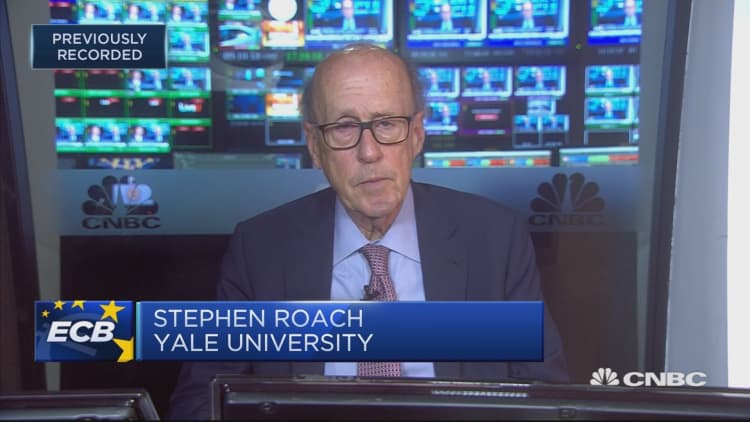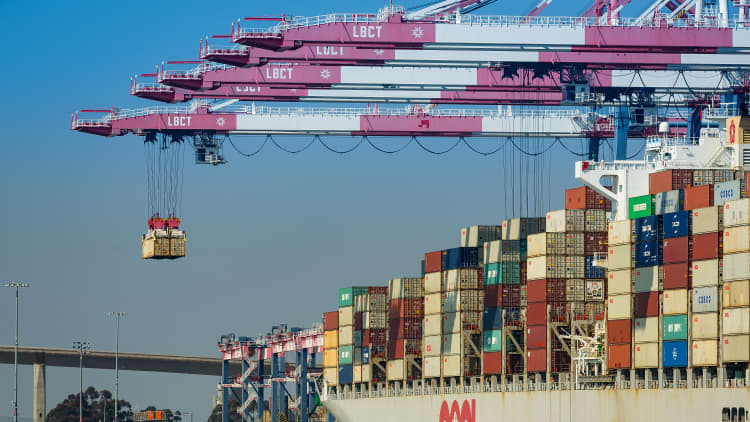
The U.S.-China "phase one" trade deal is "hollow," "flawed" and "ridiculous," a Yale University professor told CNBC on Friday.
Speaking to CNBC's "Street Signs Europe," Stephen Roach, senior lecturer at Yale University's Jackson Institute, said the preliminary trade agreement was a "pretty hollow deal."
"It's politically expedient, especially for the U.S. President who's feeling a lot of political pressures for other reasons at home," said Roach, who is also the former chairman of Morgan Stanley Asia. "But it's very flawed in that it focuses on a bilateral fix, operating on the U.S.-China bilateral deficit to address America's multilateral trade imbalances with 102 countries."
A spokesperson for the White House was not immediately available for comment when contacted by CNBC.
Investors around the world have been eagerly awaiting the signing of the phase one trade deal between the world's two largest economies, with markets experiencing volatility over the past month on the back of news related to the deal. The preliminary agreement, which is intended to pave the way to a more comprehensive deal, was hailed as a "very substantial phase one deal" by U.S. President Donald Trump in October.
According to Roach, however, the deal would be more of a political win than an effective move toward tackling the underlying problems that sparked the trade conflict.
The deal "is a ridiculous effort to fix a trade problem and it doesn't address any of the structural issues that the U.S. was so adamant about (addressing) in launching the tariffs over a year-and-a-half ago," he told CNBC. "This is a superficial effort to bring an end to a really difficult conflict between two countries."

Analysts have been weighing in on the implications of the "phase one" deal being signed for several weeks.
Speaking to CNBC's "Street Signs Asia" earlier this month, King Lip of Baker Avenue Asset Management, contradicting Roach's outlook, said he was optimistic the deal would be "a positive for both sides" economically.
Andrew Sheets, chief cross-asset strategist at Morgan Stanley, told CNBC on Thursday that although the bank expected the initial deal to be done, "that might be about as good as it gets" for some time.
Meanwhile, Beat Wittmann, partner at Porta Advisors, told CNBC last week that markets could not expect a comprehensive trade deal between the U.S. and China.
Washington and Beijing have been sending mixed signals around the timing of the signing of phase one of the deal.
White House economic adviser Larry Kudlow said last week that the U.S. and China were getting close to a deal, although he did not give any specifics on the timeline.
Meanwhile, an official from the U.S. Chamber of Commerce told CNBC's "Squawk Box" Thursday that negotiators may not be able to finalize the deal before new tariffs are scheduled to be rolled out in mid-December.
On Monday, a Chinese government source told CNBC's Eunice Yoon that the mood in Beijing around the trade deal was pessimistic. However, China later claimed "external rumors" around the trade talks were inaccurate, with reports emerging that U.S. officials had been invited to China to participate in fresh negotiations.

